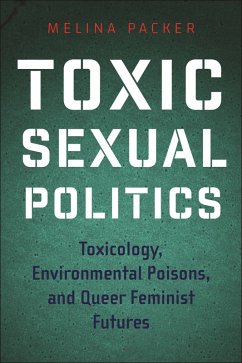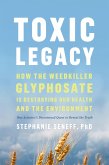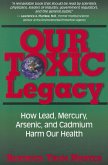A bold exposé of how the very foundation of toxicology has been contaminated by sexist and racist ideologies
The first critical understanding of the field of toxicology from a feminist and antiracist perspective, Toxic Sexual Politics asserts that the science of toxicants must be held accountable for the uneven distribution of toxic pollution along racial and sexual lines. Drawing upon in-depth interviews and extensive ethnographic and archival research, including participant observations in toxicology classrooms, conferences, and laboratories, Melina Packer urges environmental health advocates to place toxicant science within its masculinist, militarist, and eugenicist history.
Toxic Sexual Politics shows how the founding fathers of U.S. toxicology were ideologically aligned with the chemical industry, inventing a science that could "make chemicals safe," as opposed to one that could adequately protect planetary health from toxicants' hazards. While many toxicologists today are critical of the chemical industry, they continue to rely on the highly limited tools of toxicology as accurate measures of toxicity, as do government regulators, the courts, and environmental advocates.
Unlike most critiques of the chemical industry and narratives of environmental health movements, Toxic Sexual Politics refuses to take the science at face value. By focusing on the sexist, racist, and ableist biases reinforced by toxicology, Packer powerfully argues that this scientific discipline reproduces the very same white supremacist and heterosexist logics that generated environmental injustices in the first place. The field of toxicology can explicitly confront chemical corporate power by building from queer, feminist, anti-ableist, and antiracist movements for environmental and reproductive justice.
Hinweis: Dieser Artikel kann nur an eine deutsche Lieferadresse ausgeliefert werden.
The first critical understanding of the field of toxicology from a feminist and antiracist perspective, Toxic Sexual Politics asserts that the science of toxicants must be held accountable for the uneven distribution of toxic pollution along racial and sexual lines. Drawing upon in-depth interviews and extensive ethnographic and archival research, including participant observations in toxicology classrooms, conferences, and laboratories, Melina Packer urges environmental health advocates to place toxicant science within its masculinist, militarist, and eugenicist history.
Toxic Sexual Politics shows how the founding fathers of U.S. toxicology were ideologically aligned with the chemical industry, inventing a science that could "make chemicals safe," as opposed to one that could adequately protect planetary health from toxicants' hazards. While many toxicologists today are critical of the chemical industry, they continue to rely on the highly limited tools of toxicology as accurate measures of toxicity, as do government regulators, the courts, and environmental advocates.
Unlike most critiques of the chemical industry and narratives of environmental health movements, Toxic Sexual Politics refuses to take the science at face value. By focusing on the sexist, racist, and ableist biases reinforced by toxicology, Packer powerfully argues that this scientific discipline reproduces the very same white supremacist and heterosexist logics that generated environmental injustices in the first place. The field of toxicology can explicitly confront chemical corporate power by building from queer, feminist, anti-ableist, and antiracist movements for environmental and reproductive justice.
Dieser Download kann aus rechtlichen Gründen nur mit Rechnungsadresse in A, D ausgeliefert werden.
Hinweis: Dieser Artikel kann nur an eine deutsche Lieferadresse ausgeliefert werden.









